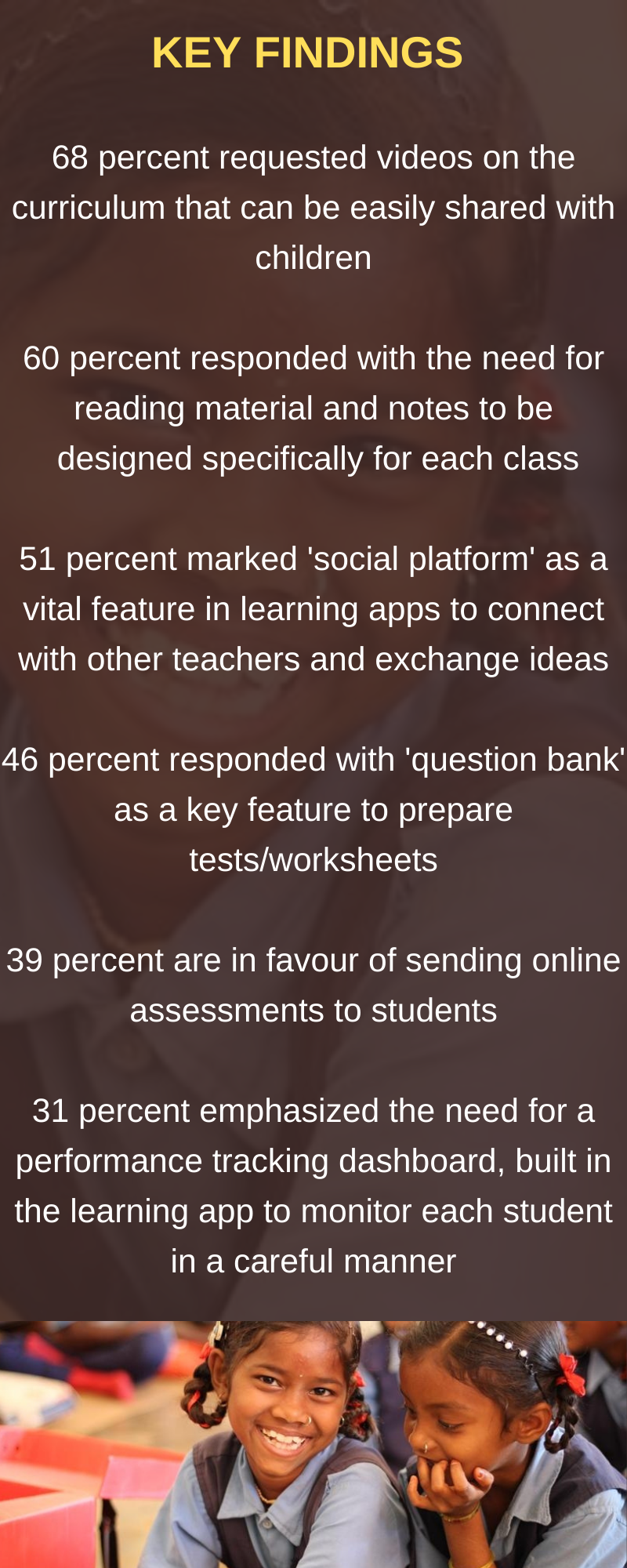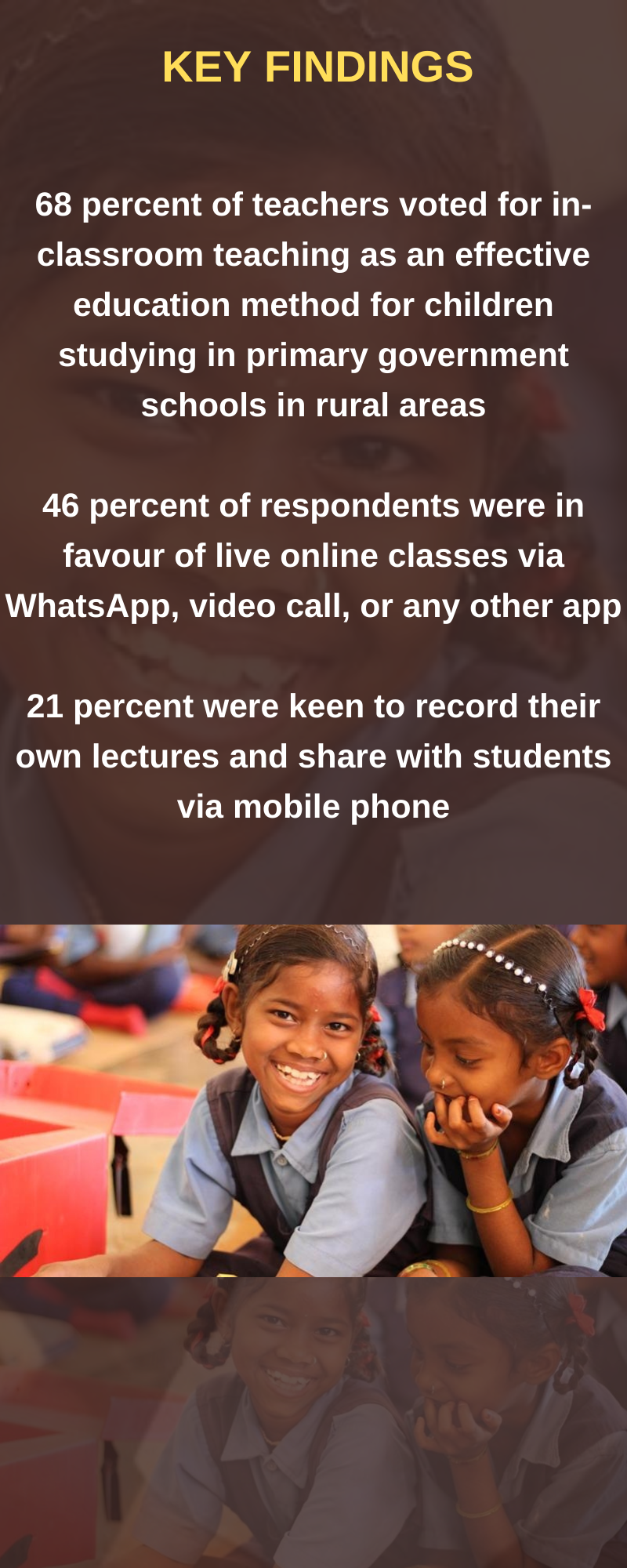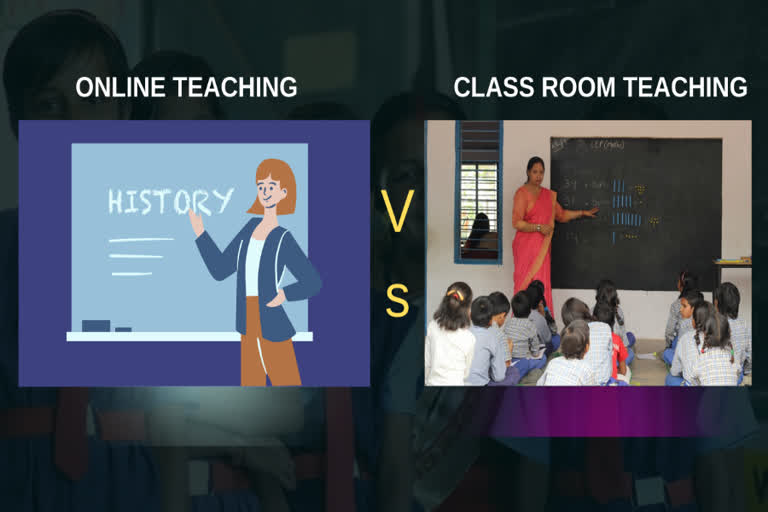New Delhi: Teachers prefer in-class teaching over online classes as an effective method to teach students, according to a survey conducted by Sampark Foundation.
Conducted digitally, the survey included teachers in rural government schools across six states and aimed at better understanding the needs of government school teachers who are using remote learning tools to teach students during the coronavirus pandemic.
The survey covered over 4,000 teachers from government schools in suburban and rural areas of Himachal Pradesh, Chhattisgarh, Haryana, Jharkhand, Uttarakhand, and Uttar Pradesh.


The key highlights of the survey are:
- 68 percent requested videos on the curriculum that can be easily shared with children.
- 60 percent responded with the need for reading material and notes to be designed specifically for each class.
- 51 percent marked 'social platform' as a vital feature in learning apps to connect with other teachers and exchange ideas.
- 46 percent responded with 'question bank' as a key feature to prepare tests/worksheets.
- 39 percent are in favour of sending online assessments to students.
- 31 percent emphasized the need for a performance tracking dashboard, built in the learning app to monitor each student in a careful manner.
- 68 percent of teachers voted for in-classroom teaching as an effective education method for children studying in primary government schools in rural areas.
- 46 percent of respondents were in favour of live online classes via WhatsApp, video call, or any other app.
- 21 percent were keen to record their own lectures and share with students via mobile phone.
The survey also highlighted that majority of teachers have access to a broadcasting medium such as television (50 percent) followed by other infrastructures such as smartphones (40 percent), feature phones (32 percent), and radio (24 percent).
44 percent of teachers emphasized the need for textbooks and notes to be handed over directly to students for effective learning. The survey also reported that 33 percent of teachers leverage videos shared on YouTube, Baithak, Diksha, and other apps, to teach students. Teachers also agreed that broadcasting educational programs on television or radio might be an effective education method, provided the content is simple, interesting, and impactful for students. Over 28 percent of teachers also stressed the importance of weekly visits to children's homes and teaching in a group of 3-5 students in one session.
The survey found that children in government schools in rural areas find directly calling teachers over the phone, an effective medium to solve doubts and queries, which in turn improves learning outcomes. However, 59 percent of respondents also considered students discussing their queries and doubts with elder siblings, relatives, other educated people in their neighborhood.
Close to 60 percent of the teachers surveyed are in favour of live video classes conducted by them on WhatsApp and over 40 percent prefer to resolving student's queries once a week in person. The survey also highlighted peer-to-peer doubt resolution on a digital discussion forum, as an effective medium to solve student queries.
Addressing impactful methods of learning assessment, 54 percent of teachers voted for online quizzes while 52 percent were in favour of questions asked during live online classes. 48 percent found printed assessments as an effective means of learning assessment and 25 percent requested for an assessment app or an online platform for students.
Also Read: The 11 biggest space missions of 2021 (and their chances of success)
(Inputs from IANS)



